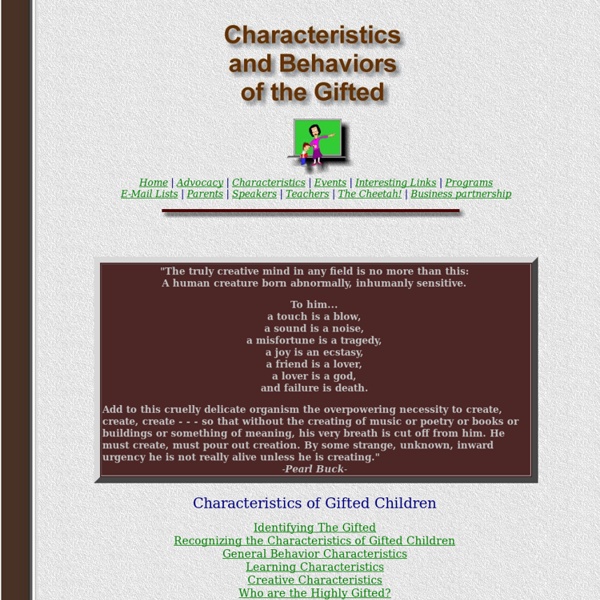More advice about teaching ESL students (FAQ)
Who is this FAQ for? The primary audience for this FAQ are the mainstream (i.e. non-ESL) teachers at Frankfurt International School. For this reason some of the answers are related to the particular situation at FIS. Some of the links (e.g. to internal documents) will not work outside of the school's intranet. Most of the advice, however, will be of use to mainstream teachers of ESL students in any school situation. Top What's the most important thing I should know about the ESL students I teach? Who they are! Should I correct an ESL student's grammar mistakes? Generally not. An indirect way to give corrective feedback is to provide the student with a model answer. As for written work, once again it is important that feedback is concentrated on the content quality of the answer rather than on its grammatical accuracy. Consider asking the student what kind of feedback he or she would like. In general, it is worth pointing out that errors are a natural part of the language learning process.
GIFTED 101
What is giftedness? The hallmark of giftedness is abstract thinking ability. Those who are gifted learn more and learn faster; they remember more and make more original connections compared to those in the normal range. Those who are gifted also have a depth of feeling with levels of intensity. "Giftedness is asynchronous development in which advanced cognitive abilities and heightened intensity combine to create inner experiences and awareness that are qualitatively different from the norm. - From the work of Linda Silverman cited in Academic Advocacy for Gifted Children, Barbara Jackson Gilman, p. 39. Back to Top How is giftedness identified? Usually a child qualifies for gifted education through testing. Click on this link for further explanation about percentile ranking. Gilbert Public Schools administers the CogAT, though other test results are accepted. For further information, see the article A Place to Start: Is My Child Gifted? As an adult, am I gifted? Reflection By Laurel K.
Read2Go
High Achiever, Gifted Learner, CreativeThinker
Identification of gifted students is clouded when concerned adults misinterpret high achievement as giftedness. High-achieving students are noticed for their on-time, neat, well-developed, and correct learning products. Adults comment on these students' consistent high grades and note how well they acclimate to class procedures and discussions. Some adults assume these students are gifted because their school-appropriate behaviors and products surface above the typical responses of grade-level students. Educators with expertise in gifted education are frustrated trying to help other educators and parents understand that while high achievers are valuable participants whose high-level modeling is welcomed in classes, they learn differently from gifted learners. In situations in which they are respected and encouraged, gifted students' thinking is more complex with abstract inferences and more diverse perceptions than is typical of high achievers. Szabos, J. (1989).
Time Timer
Definitions of Giftedness | National Association for Gifted Children
Giftedness, intelligence, and talent are fluid concepts and may look different in different contexts and cultures. Even within schools you will find a range of beliefs about the word "gifted," which has become a term with multiple meanings and much nuance. Gifted children may develop asynchronously: their minds are often ahead of their physical growth, and specific cognitive and social-emotional functions can develop unevenly. Some gifted children with exceptional aptitude may not demonstrate outstanding levels of achievement due to environmental circumstances such as limited opportunities to learn as a result of poverty, discrimination, or cultural barriers; due to physical or learning disabilities; or due to motivational or emotional problems. NAGC does not subscribe to any one theory of the nature of human abilities or their origins. Definitions of Giftedness National Association for Gifted Children State Definitions of Gifted and Talented Compare the state definitions.
Sōsh™
Support for gifted and talented children
A gifted or talented child can be found in any family and in almost any classroom. Giftedness can be found in any culture, ethnic or socio-economic group. Their talents can be intellectual, emotional or physical, and appear at any age. Giftedness refers to a high intelligence or aptitude, while talented refers to a high level of performance in areas such as music, art, craft, dance or sport. Most children need to repeat something 7-11 times to learn something new. Some signs of giftedness include exceptional (amazing) use of language, an ability to concentrate on complex tasks for a long time, asking lots of questions, or being exceptionally coordinated. Gifts or talents can be different within the context of ethnicity or culture. Experts agree it is important to identify a gifted child to help them achieve their full potential. If you think your child may have a special ability and they attend an early childhood centre, talk to their teacher. You could also:



